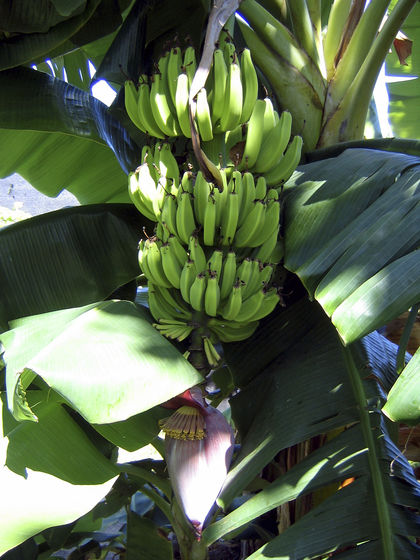BANANA REPUBLIC

"Banana republic" is a derogatory term for countries under the economic control of foreign-owned companies or industries. The term originated in the late 1800s when American fruit companies controlled the economic, political, and social development of many ostensibly sovereign Central American nations. Since then the phrase has come to signify any country that is economically dependent on foreign-owned companies. Its usage has also expanded over the decades to even refer to the control of part of a country's bureaucracy by an opposing bureaucracy of the same country. The term also suggests that the host country has a corrupt government that profits from the arrangement.
The nation of Honduras is most closely identified with the term banana republic. In the late 1870s, a liberal reform government came to power in Honduras and, in an attempt to alleviate some of the country's economic problems, aggressively sought foreign investment. The government saw mineral exploitation as a possible source of foreign revenue but after some success at silver mining the effort failed when the price of silver on the world market collapsed. Next, banana cultivation became a means of luring foreign investment. The Honduran government saw American companies as an attractive partner in this venture because of their ready capital, supply of merchant vessels, marketing know-how, and access to home markets; the government tempted American investment with exaggerated promises of easy profits.
Minor Keith and his United Fruit Company is the classic example of a banana republic scenario. Keith was an American who built railroad lines in Costa Rica. Along the railroad right-of-way he planted banana trees as a cash crop. Already familiar with banana cultivation and Central American politics, Keith formed the Tropical Trading and Transport Company. Since he was already a large stockholder in the Boston Tropical Fruit Trading Company, he eventually merged the two into a new concern called the United Fruit Company. Keith's regional political influence was made even stronger when he married into an influential Costa Rican family.
In 1893 the Honduran government, in an effort to support local banana growers and make the banana industry more competitive, put restrictions on the buying, selling, and transporting of Honduran bananas. The government also put a two-cent tax on each stem of bananas, with the ensuing revenue earmarked for education and infrastructure improvements. By 1912, however, Keith's United Fruit Company was largely in control of Honduran politics and managed to have the tax repealed. This act cost the Honduran government $121 million through the first half of the 20th century. In addition the Honduran government had implemented policies designed to prevent the large fruit growers from increasing their land holdings at the expense of small growers. But because of its control of irrigation machinery and pesticides, and through various marketing schemes, United Fruit was able to force many of these small growers to sell their land holdings. The fruit company executives soon became political power brokers, especially after their companies diversified into other areas of the Honduran economy.
While the fruit companies did bring some development, infrastructure improvement, and comparatively high wages to Central America they also left a trail of exploitation and corruption.
The term banana republic is still popular today. A writer in the Humanist claimed in 1994 that U.S. foreign policy, abetted by the U.S. media, still renders this "mineral-and-land rich nation a virtual banana republic." And in 1997 a New York-based arbitrageur, worrying over the economic policies of a socialist-oriented French government, claimed that "France is a banana republic when it comes to corporate governance."
[ Michael Knes ]
FURTHER READING:
Acker, Alison. Honduras: The Making of a Banana Republic. Boston: South End Press, 1988.
Moberg, Mark. "Crown Colony as Banana Republic: The United Fruit Company in British Honduras, 1900-1920." Journal of Latin American Studies 28 (May 1996).
Osterland, Andrew "France is a Banana Republic." Financial World, July/August 1997.
O'Sullivan, Gerry. "Forgetting the General." Humanist 54 (March/April 1994).
Stewart, Watt. Keith and Costa Rica: A Biographical Study of Minor Cooper Keith. Albuquerque: University of New Mexico Press, 1964.
Comment about this article, ask questions, or add new information about this topic: